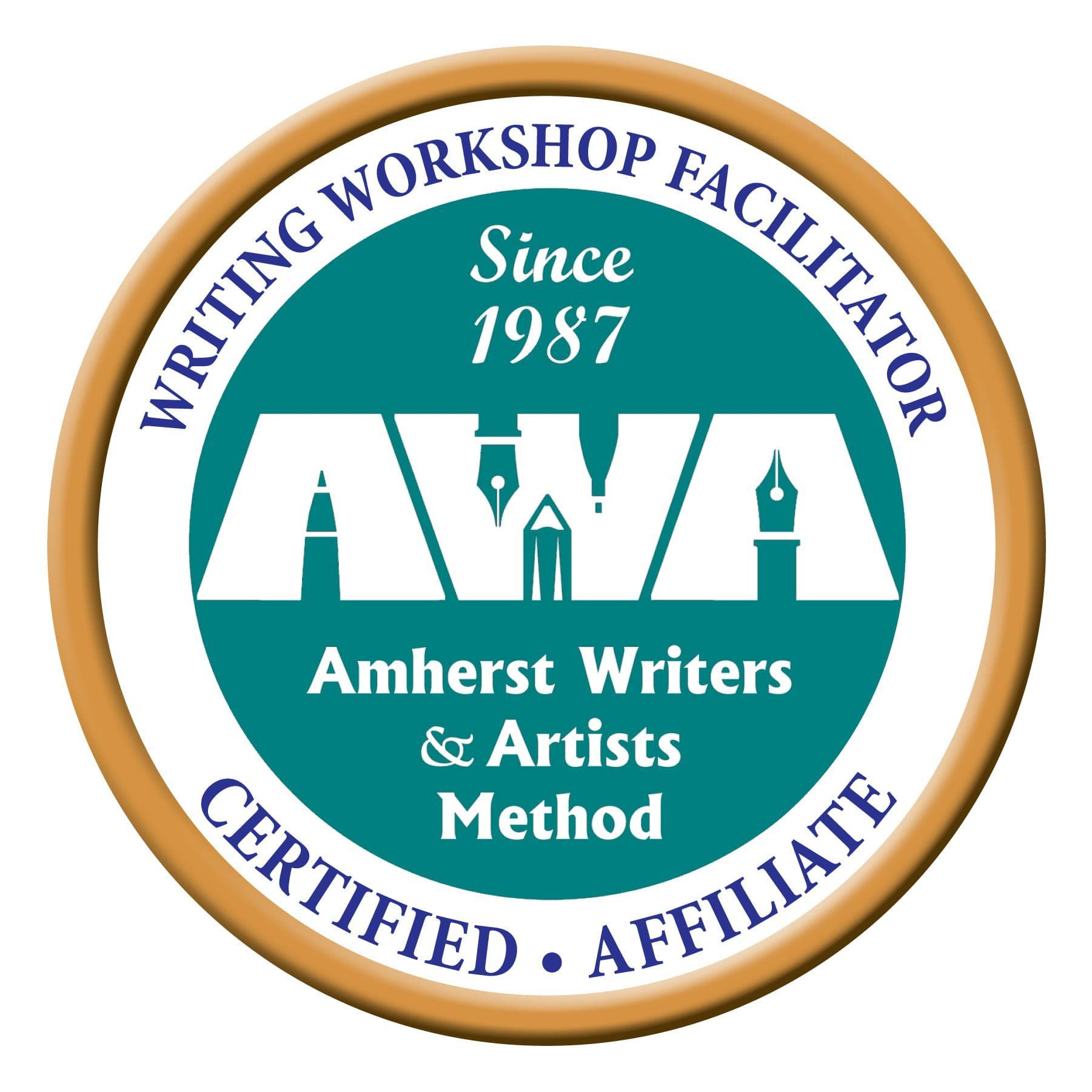
Amherst Writers and Artists….. Writing Workshop Method
So, what is the AWA Method I hear you ask…..
Well, the AWA Method is a particular way of leading writing workshops.
AWA’s core belief is simple: every person is a writer, and every writer deserves a safe environment in which to experiment, learn, and develop craft.
The method is supported by a philosophy based on 5 ESSENTIAL AFFIRMATIONS and functions according to 6 ESSENTIAL PRACTICES…..
THE FIVE ESSENTIAL AFFIRMATIONS
- Everyone has a strong, unique voice.
- Everyone is born with creative genius.
- Writing as an art form belongs to all people, regardless of economic class or education level.
- The teaching of craft can be done without damage to a writer’s original voice or artistic self-esteem.
- A writer is someone who writes.
THE SIX ESSENTIAL PRACTICES
- We maintain a non-hierarchical spirit regarding the writing. The facilitator is not the “expert” and no one’s writing is treated as more or less important than anyone else’s.
- Confidentiality about what is written in the workshop is maintained at all times, and the privacy of the writer is protected. We maintain confidentiality by treating all writing as fiction – feedback is offered to the writing, not to the life of the person writing. We don’t talk about any work we’ve heard in the group to anyone outside of the workshop space.
- In an AWA workshop, we are asked to listen differently than we usually do in our lives. We are not asked to listen so that we can help or fix or sympathize with the writer. We are not asked to listen so that we can add our own story. We are asked to enter into the universe that the writer has created. We are asked to leave behind our own experiences and expectations. We are asked to listen to how the story or the poem is told. In an AWA workshop we listen for and notice what works. We listen for and notice the craft choices a writer has made that help to create success in the writing.
- No criticism, suggestion, or question is directed toward the writer in response to first-draft, just-written work. A thorough critique is offered only when the writer asks for it, and only when he or she has distributed work in manuscript form. When work has been offered in manuscript form, critiques are balanced; there is as much affirmation as suggestion for change.
- The teaching of craft is taken seriously, and is conducted through exercises that invite experimentation and growth.
- The leader writes along with the participants, and reads that work aloud as well. This practice is absolutely necessary, for only in this way is there equality of risk-taking and mutuality of trust.
The Objectives of an AWA Workshop are….
- to instil respect and openness to others’ voices and our own.
- to allow individuals to develop confidence in their craft at their own pace and in their own direction.
- to model understanding that each voice is individual, unique & contains creative genius
- to establish a way of listening that leaves the listeners assumptions and expectations aside
In all these objectives is the proven truth that each writer emerges from the workshop with the knowledge that they have been deeply heard.
You can find a link to the AWA website
HERE
(Please note…at the time of writing this, the AWA Website is undergoing some changes so please be patient with it ! )
I am delighted to let you know that having undergone the appropriate training at the end of June 2023
I am now an AWA Affiliate, certified to lead workshops in the AWA method
as described in ‘Writing Alone and With Others’ by Pat Schneider, Oxford University Press
Many AWA Affiliates are leading writing workshops online via zoom which works brilliantly for many people and since Covid has become a preferred format for many. However, I am very much hoping to offer, live, in-person workshops should there prove to be the demand.
If you would be interested in attending such a workshop, please do message me and/or join my mailing list so that I can gauge interest.


